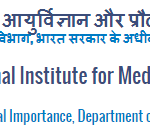SCTIMST Neurology Question Paper 2022 Download Free PDF
Sree Chitra Tirunal Institute for Medical Sciences and Technology (SCTIMST) 2022 Neurology Question paper with answers SCTIMST Neurology 2022 Question with solution you can download it in FREE, if SCTIMST Neurology (MCQ) 2022 paper in text or pdf for SCTIMST Neurology 2022 Answer Keys you can download SCTIMST 2022 page also just Go to menu bar, Click on File->then Save.

SCTIMST Neurology Question Paper 2022 Download
Sree Chitra Tirunal Institute for Medical Sciences and Technology (SCTIMST) 2022 Neurology Question paper Free Download PDF is available in www.oldquestionpapers.net which has been provided by many students this SCTIMST 2022 paper is available for all the students in FREE and also SCTIMST Neurology (MCQ) Question paper 2022 fully solved SCTIMST with answer keys and solution.
You can get daily updates on SCTIMST 2022 from www.oldquestionpapers.net here you can also check similar links for other related study materials on SCTIMST Neurology (MCQ) Here Sree Chitra Tirunal Institute for Medical Sciences and Technology (SCTIMST) Neurology (MCQ) question bank 2022 is also available in Neurology (MCQ) English Language.
SAMPLE QUESTIONS
Q1. All of the following micro-organisms display “Acid-fastness” EXCEPT:
(A) Mycobacterium bovis
(B) Nocardia
(C) Cryptococcus
(D) Isospora
Q2. The most common presentation of extrapulmonary tuberculosis in HIV infected patients is:
(A) Tuberculous meningitis
(B) Lymph node tuberculosis
(C) Cerebral parenchymal tuberculoma
(D) Intestinal tuberculosis
Q3. A child recognizes own gender and age, helps in dressing and washes hands by:
(A) 30 months of age
(B) 36 months
(C) 42 months
(D) 48 months
Q4. The motor skill to do skipping develops by which year of age?
(A) 4 years
(B) 5 years
(C) 6 years
(D) 7 years
Q5. Laron Syndrome involves mutation of which of the following genes?
(A) Androgen receptor
(B) Glucocorticoid receptor
(C) Growth hormone receptor
(D) Thyroxine recptor
![]() DM Neuroimaging & Interventional Neuroradiology
DM Neuroimaging & Interventional Neuroradiology
See Also….

